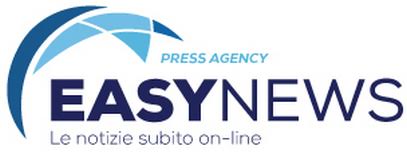
Türkiye earthquakes: six months of resilient response and support
Statement by Dr Batyr Berdyklychev, WHO Representative in Türkiye
6 February 2023 is a date that will never be forgotten by the millions of Turkish and Syrian people affected by the devastating earthquakes that struck that day.
More than 50 000 people lost their lives and hundreds of thousands were injured. Millions more lost their homes and their livelihoods. It was estimated that more than 9 million people were affected in some way by the disaster, with almost 3 million displaced.
The destruction of infrastructure and the weather conditions made the suffering even greater. The initial focus was on search and rescue operations, with dedicated efforts to locate and assist survivors.
Other urgent needs included providing medical care for the injured, and ensuring that the basics of food, drinking-water and shelter were available for people who had lost everything in the blink of an eye.
WHO, in support of the Turkish Government, responded immediately, dispatching life-saving medicines and other medical supplies and activating its Emergency Medical Teams Network to provide essential services and support to those most in need. Notably, this deployment marked the largest emergency medical team operation ever undertaken in the WHO European Region.
Since the very beginning, WHO has worked closely with the Turkish Ministry of Health (MoH), the Ministry of Family and Social Services, and the Disaster and Emergency Management Authority (AFAD) to provide resolute support to the government-led response and recovery efforts. The collective vision for improved outcomes for the affected populations has been the driving force behind these actions.
WHO has provided unwavering support to the government’s response over the past 6 months. Our efforts have focused on reinforcing mental health services, scaling up physical rehabilitation for those who were injured, supporting the provision of health services at primary and secondary care levels, and enhancing infectious disease laboratory and surveillance systems. Across all these areas, we have worked to engage affected communities in early recovery efforts and hear from them about their preferences and needs.
When the earthquakes struck, the MoH and WHO promptly collaborated to develop crucial public health messages on a wide range of priority topics. To shape these messages effectively, WHO/Europe conducted regular social listening, gathering insights from communities through digital platforms, and analysing online posts and conversations. This approach helped to identify people's health information needs and voids, perceptions on the ground, and areas requiring support.
WHO has conducted vital training sessions for health and social care staff, equipping them with the tools to provide scalable psychological interventions and emergency obstetric care. We have supported with training on how to communicate risks and manage mis- and disinformation. Additionally, the team at the WHO Country Office in Türkiye has focused on bolstering mental health services and strengthening infectious disease laboratory and surveillance systems to ensure optimal functionality.
Now, exactly 6 months later, our efforts continue as we stand by those who endured physical and mental challenges in the aftermath of the earthquakes. Those impacted, whether directly or indirectly, are still struggling, and our commitment to supporting their well-being remains steadfast.
There are still many challenges ahead. Access to health services remains limited in certain provinces, and the return of displaced people to the affected areas poses additional complexities. Nonetheless, WHO is committed to addressing these challenges head-on.
WHO’s efforts are never solely limited to immediate relief. We were in Türkiye before the disaster hit, and we will continue our support in the long term. WHO has been working to strengthen physiotherapy services in primary health-care systems, emphasizing areas most affected by the earthquakes. By providing support at community level, we hope to ease the burden on hospitals and ensure continuity of care for those with chronic health conditions. And by working with communities as partners, we hope to enhance their resilience for the future.
We understand that we cannot tackle the immense challenges caused by this disaster alone, and the contributions from our donors have been instrumental in making a tangible difference to the lives of the affected communities.
With the financial assistance of USAID’s Bureau for Humanitarian Assistance, the Governments of Kuwait and Norway, and the Directorate-General for European Civil Protection and Humanitarian Aid Operations, we have been able to provide much-needed aid, training, and essential medical supplies to the most vulnerable populations.
The journey to complete recovery may be long, but together we can make a difference to the lives of those who have been affected by this tragedy. I extend my heartfelt gratitude to all the people and organizations who have contributed to this cause. Let us continue to work hand in hand, with compassion and determination, as we endeavour to rebuild and restore hope for the people of Türkiye.
ENDS
www.who.int/emergencies/situations/Earthquake-T%C3%BCrkiye-Syria
This information was brought to you by Cision http://news.cision.com
If you would rather not receive future communications from WHO Regional Office for Europe, please go to https://optout.ne.cision.com/en/uTgYqyUZLvxvt7YkhpHFxrP6LxL3dYHhxgdmqqRyAKxsPMC9TGX71W4SpsdCgdYzqtLXfPUQtSH13XVnLtpqt9pnC3c3wVxfuBnh2LPyoHrgVmfznfULko6eF5M9J23Vu8u.
WHO Regional Office for Europe, Marmorvej 51, Copenhagen, 2100 Denmark

